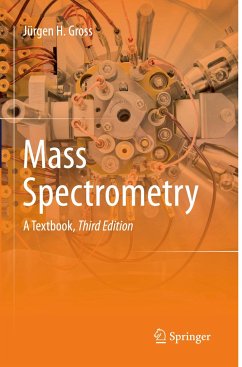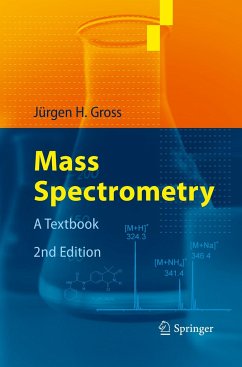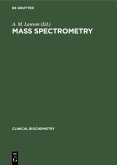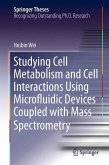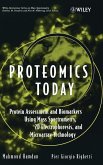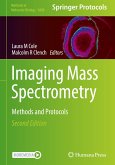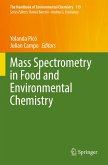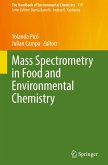This third edition of the highly successful textbook, acclaimed for its comprehensiveness, accuracy, and excellent illustrations and photographs now comes with updated coverage plus numerous didactical improvements:
The number of figures has notably increased, with about one third of them now presented in color. More photographs and schematics make it easier to understand and provide valuable insights into the practical aspects of instrumentation and procedures.
Flow charts describe procedures and approaches to mass spectral interpretation and aid in decision making.
Bulleted enumerations offer a quick overview wherever several features, arguments, assumptions, or properties of a subject call for clear presentation.
Examples and notes now come with a short subheading that immediately conveys what this section is about. More examples, especially of methods and applications are given and some how-to-style paragraphs provide practical guidance.
Each chapter ends with a concise summary that is subdivided into compact sections highlighting the basics of the subject, its figures of merit, typical applications, and its role in current mass spectromety. In the case of instrumentation (chapter 4), there are even summaries covering mass analyzers type by type.
Digital object identifiers (DOIs) are now included to facilitate retrieval of references.
All of this is presented in a new, attractive layout.
The book's website provides exercises and supplementary material (www.ms-textbook.com).
The number of figures has notably increased, with about one third of them now presented in color. More photographs and schematics make it easier to understand and provide valuable insights into the practical aspects of instrumentation and procedures.
Flow charts describe procedures and approaches to mass spectral interpretation and aid in decision making.
Bulleted enumerations offer a quick overview wherever several features, arguments, assumptions, or properties of a subject call for clear presentation.
Examples and notes now come with a short subheading that immediately conveys what this section is about. More examples, especially of methods and applications are given and some how-to-style paragraphs provide practical guidance.
Each chapter ends with a concise summary that is subdivided into compact sections highlighting the basics of the subject, its figures of merit, typical applications, and its role in current mass spectromety. In the case of instrumentation (chapter 4), there are even summaries covering mass analyzers type by type.
Digital object identifiers (DOIs) are now included to facilitate retrieval of references.
All of this is presented in a new, attractive layout.
The book's website provides exercises and supplementary material (www.ms-textbook.com).
"This third edition has many sections that make it a practical resource, with information on how to conduct tasks and on new innovations. ... this well-conceived text is valuable, well written, and clearly a labor of love. Summing Up: Recommended. Upper-division undergraduates and above; faculty and professionals." (J. Allison, Choice, Vol. 55 (6), February, 2018)
"This book does an excellent job at covering a lot of basic and complex material spanning a wide range of expertise. ... This book would be a near ideal selection for those faculty teaching a graduate course in mass spectrometry." (David C. Muddiman, Analytical and Bioanalytical Chemistry, Vol. 410, 2018)
"Mass spectrometry is currently eclipsing all other methods for organic analysis. ...The author has managed to create a style and presentation that is both pleasing and effective. ... recommending it to chemists of all levels interested in mass spectrometry." (Colin F. Poole, Chromatographia, Vol. 81 (2018)
"This book does an excellent job at covering a lot of basic and complex material spanning a wide range of expertise. ... This book would be a near ideal selection for those faculty teaching a graduate course in mass spectrometry." (David C. Muddiman, Analytical and Bioanalytical Chemistry, Vol. 410, 2018)
"Mass spectrometry is currently eclipsing all other methods for organic analysis. ...The author has managed to create a style and presentation that is both pleasing and effective. ... recommending it to chemists of all levels interested in mass spectrometry." (Colin F. Poole, Chromatographia, Vol. 81 (2018)

